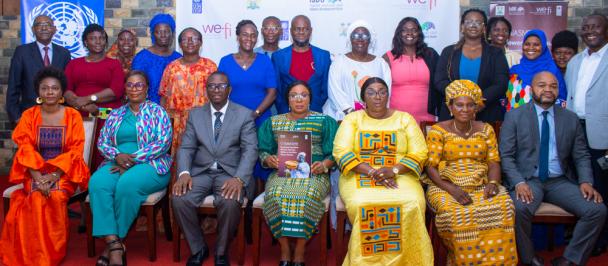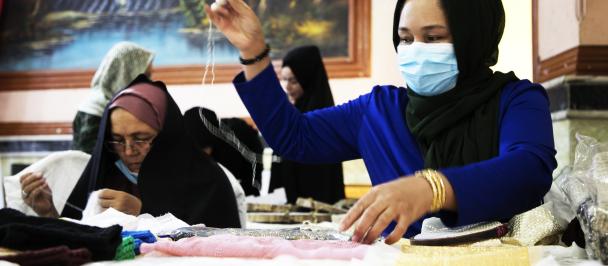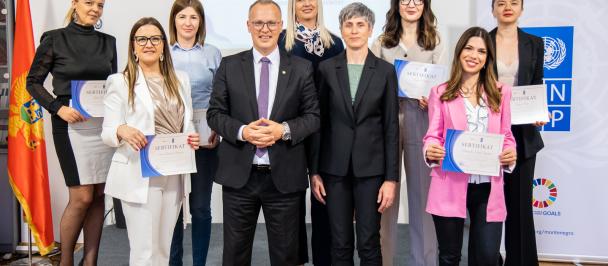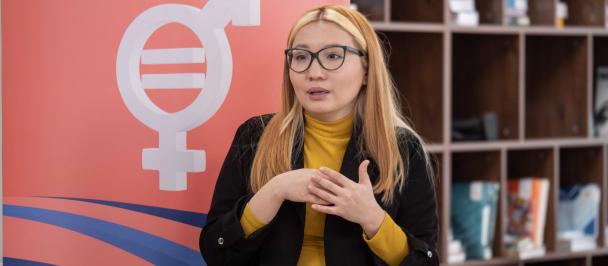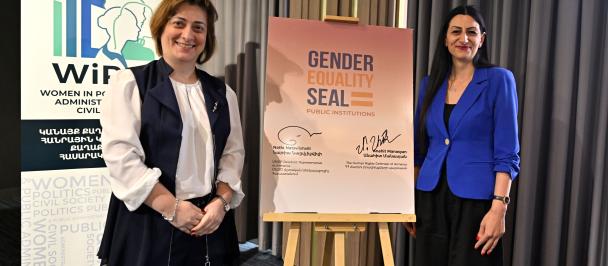AICPA, CIMA & Satyn
Women Friendly Workplace Awards 2023
August 6, 2023
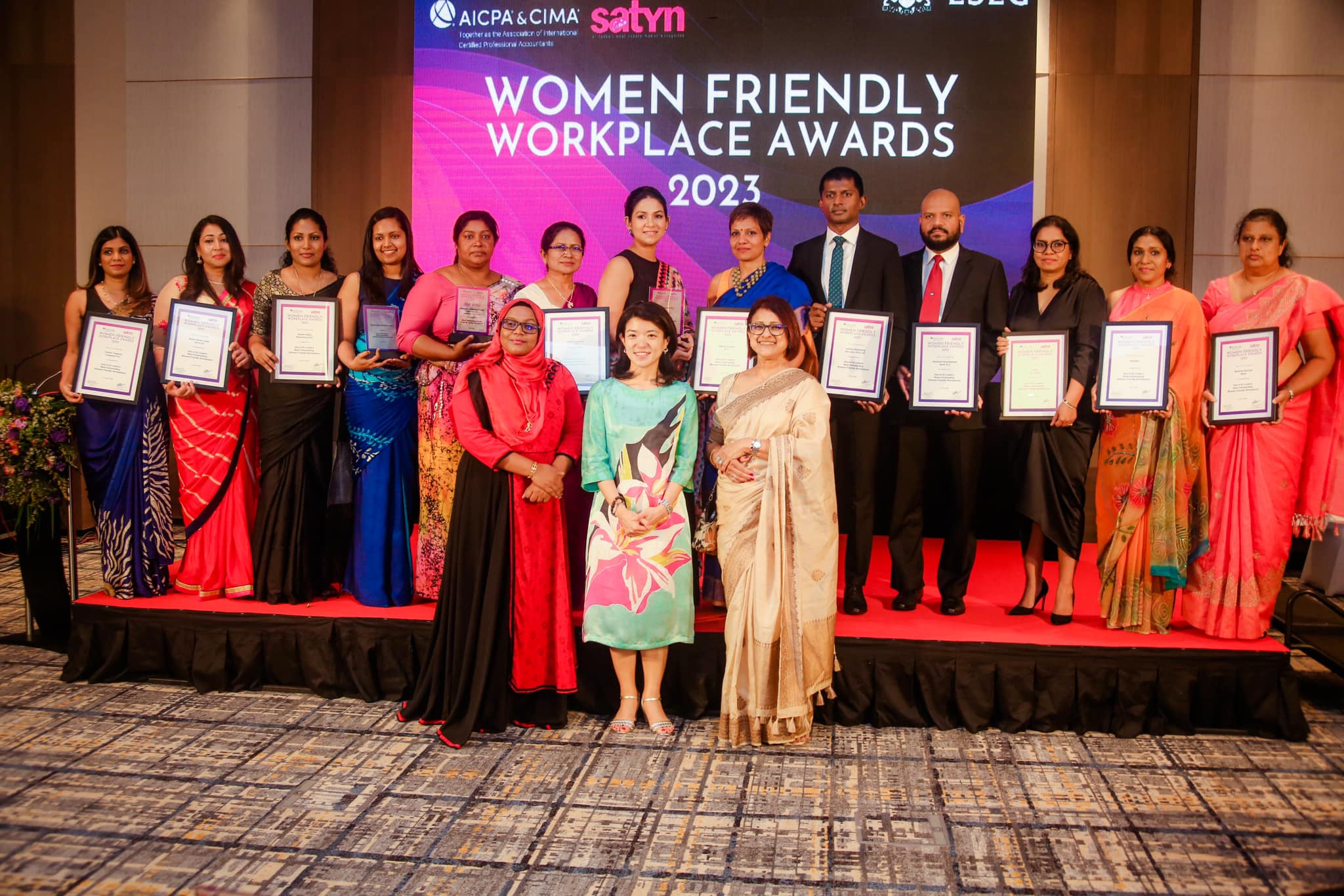
Ms. Azusa Kubota, Resident Representative, UNDP Sri Lanka as Chief Guest at the event
Check against delivery
Ayubowan, Vanakam, Assalamu Alaikum
It’s a pleasure to be here this evening, at the Women Friendly Workplace awards for 2023.
Let me start off by congratulating the organizers, Satyn Magazine and CIMA, for pioneering this award for the Most Women Friendly Workplace and setting the standards, augmenting the importance of creating a women friendly workplace culture and recognizing the specific measures and inclusive mechanisms that encourage women to achieve a higher level of success at work.
I also would want to stress the importance of the Satyn magazine, that provides a powerful platform to share women’s voices and engage with topics that are both relevant and timely.
The past few years have seen a confluence of crisis, which has resulted in a a fast-shrinking space for feminist activism, while women have experienced the pandemic and cascading crisis disproportionately.
While we have come a long way as the global community, we know that the gender bias persists, well into the 21st century.
The United Nations Development Programme (UNDP) undertakes regular assessment of the attitudes people have towards men’s and women’s societal roles, and the Gender Social Norms Index (GSNI) 2023 which was published recently, quantifies biases against women, capturing people’s attitudes on women’s roles along four key dimensions: political, educational, economic and physical integrity.
The report shows that biases remain persistent. Around 90 percent of men and 87 percent of women hold internal biases against women—roughly the same numbers as a decade ago.
The gender-based biases, which we carry into voting booths, board meetings, interview panels are barriers to women achieving their full potential.
It casts a shadow over our beliefs and how we act on them. No matter where women live, women are paid less, shoulder more unpaid housework and childcare, and are wildly under-represented in leadership roles both in the public and private sectors.
Under the guidance of the UN Secretary-General, the United Nations is committed to zero tolerance to sexual misconduct (i.e., sexual exploitation and abuse (SEA) and sexual harassment (SH) in the workplace.
We at UNDP in Sri Lanka, not only foster a harassment free environment in offices, but also expects the commitment of its partners to adhere to such standards, by endorsing the UN Protocol on Allegations of Sexual Exploitation and Abuse Involving Implementing Partners (“UN Protocol”), providing operational standards to UN entities working with implementing partners.
Between 2020 and 2022, the International Finance Corporation (IFC) conducted a study with 1,653 employees to better understand the prevalence and impact of violence and harassment on employees and businesses in Sri Lanka.
The findings highlighted; a staggering three out of five people surveyed experienced some form of workplace violence or harassment, with nearly one out of five people surveyed feeling unsafe at work in the four weeks prior to the survey. Surveyed employees across all genders and age groups also reported that they were impacted by bullying, sexual harassment, and/or online violence.
These results challenge the conception that only younger women are vulnerable to workplace violence and harassment. Employees with a disability were more likely to experience all forms of workplace bullying (68 percent versus 59 percent of employees who did not have a disability), while PWDs also said that their work was affected by domestic violence at a rate that was more than four times higher than the rate for other survey participants. It is also importance to note, sexual harassment and online violence seemed to be the most underreported forms of workplace violence.
Due to the impacts of workplace violence and harassment, each company surveyed lost six working days per employee, per year, which is the equivalent of at least $1.7 million across all nine companies. This is a modest estimate as it does not include costs for addressing the time lost to workplace violence and harassment, which include payment for overtime, turnover costs, recruitment costs, and/or productivity delays.
Adding to this, as a part of UNDPs flagship Regional Programme on Business and Human Rights in Asia with the support of the European Union, a study which looked at the role the state plays in protecting Women’s participation in the workforce, found that, the persistent influence of gender-based social norms, beliefs, and behaviours on labour market dynamics as well as negative attitudes among employers, workers, their families and communities contribute to women’s low labour force participation.
A key finding was that legislative reform would contribute significantly to changing social norms that block progress.
Building on these findings, the project has been leveraging the UN Guiding Principles through public outreach and research, to promote a more structured dialogue and momentum for action not just by the state but by the private sector to address challenges faced by women in the workplace.
Additionally, women workers in diverse sectors, such as the Free Trade Zones are supported, as key contributors to the economy, to be able to raise their voices and speak up for fair and equal treatment in the workplace and that their rights are upheld in all decision-making processes.
I would also like to mention here, that UNDP in Sri Lanka is proud to be the only South-Asian Country Office to be Gold Certified under the Gender Equality Seal.
The UNDP Gender Equality Seal is a corporate quality assurance mechanism that measures, and certifies achievements and competence of UNDP Country Offices (COs), Regional Centres and Headquarter Units in advancing gender equality and women’s empowerment. It benchmarks the ability of COs to contribute to gender equality on the ground.
It is designed as a strategic planning and learning exercise that improves the efficiency and the impact of the CO's gender equality and women’s empowerment work and strengthens the momentum towards sustainable results. It also facilitates the identification and documentation of good practices and impacts of the work on gender equality. The Seal draws its conceptual framework from UNDPs global Gender Equality Strategy and scores the office against 75 benchmarks organized in seven sections, ranging from strong management systems and accountability mechanisms, to systematic investment in building in-house capacities and effective integration of gender concerns into the programmes, among others.
Notably, a few of UNDP Sri Lanka’s Gold achievements include; a strong leadership on gender equality of Senior Management; effective implementation of work-life balance policies, flexible working arrangements, and measures to support staff to face challenges created by crisis situations; the establishment of a cross-cutting Gender Focal Team pivotal in gender mainstreaming within the organization and programmes; 74% of the project allocations to further gender mainstreaming programmes; and the strong and strategic partnerships with National and local Government, Civil Society and other relevant stakeholders working on the issues of SGBV, providing shelter facilities, access to justice by women and girls, and women’s economic empowerment. UNDP has also been working with Women Parliamentarian Caucus and the Sectoral Oversight Committee on Gender to ensure strong advocacy and oversight on matters of gender inequalities.
We are now looking beyond on advancing the Gender Seal process amongst some key private sector champions and partners in Sri Lanka.
It is encouraging to note that In Sri Lanka, sexual harassment is a criminal offence under Section 345 of the Penal Code and that the Constitution guarantees the right to equality and equal protection of the law including the prohibition of discrimination on the basis of sex (Article 12 (1) & (2)).
The global community has made it clear that violence and harassment in the world of work, will not and should not be tolerated.
In 2019, the ILO’s International Labour Conference adopted the Centenary Declaration on the Future of Work, expressing a clear commitment to a world of work free from violence and harassment. On the same day, the Centenary Conference brought this commitment to life with the adoption of the Violence and Harassment Convention (No. 190) and Recommendation (No. 206).
Decent Work which entails an income, which allows the working individual a good life, while at work, everybody has an equal chance to develop themselves; working conditions are safe; there is no instance of child and forced/bonded labour; and discrimination does not occur. Trade unions are allowed a real say in work related matters and the state has created a social safety net for all especially for the sick, weak, elderly and expecting women. In Sri Lanka, this agenda is given significant attention and follow up.
The Decent Work County Programme (DWCP) for 2018-2022 is the fourth generation DWCP for Sri Lanka, outlining policy direction, strategies, and anticipated results through prioritized areas of work during this period that will contribute to Decent Work for All, thus ensuring no one is left behind.
In Sri Lanka the Employers Federation of Ceylon supported by ILO has done a code of conduct and guidelines to prevent and address sexual harassment at workplaces that came to effect in 2013.
To reiterate, we all have a responsibility in building a better future for all. We need to foster workplaces that encourage collaboration, innovative thinking and continuous learning for all employees, while creating a safe space for people working together with a shared sense of purpose.
Let me conclude by congratulating the organizations and winners today, that have shown exemplary leadership in creating Women Friendly Workplaces, encouraging a sustainable, just and safe Sri Lanka for all.
Thank you
***

 Locations
Locations